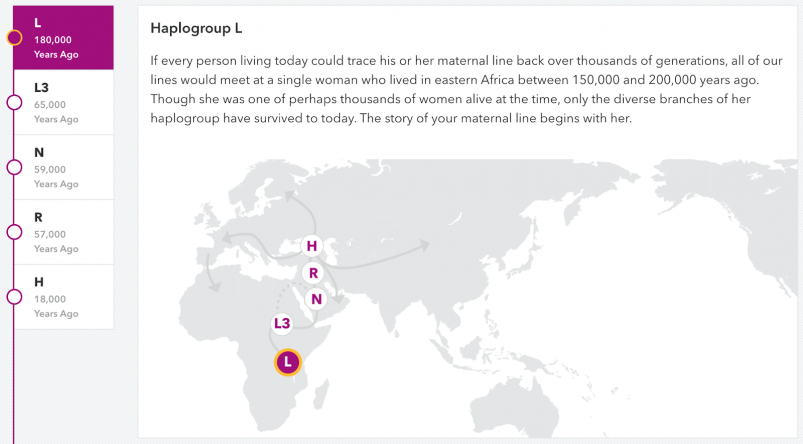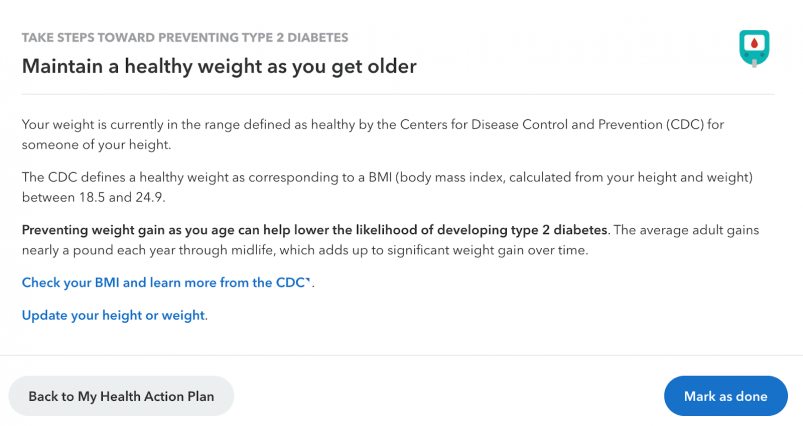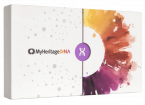
The at-home DNA testing market is full of options, with MyHeritage and 23andMe being two of the most popular. Both offer valuable genetic insights, but each has its own strengths and pricing. This guide will help you decide which service is right for you.
First, 23andMe is known for its focus on both ancestry and health. In addition to ancestry reports, it provides health screenings that reveal genetic risks for certain conditions, as well as fun trait reports about things like taste preferences and sleep patterns. It’s a great option if you’re looking for more than just ancestry data.
MyHeritage, on the other hand, excels at family history research. With a wide range of genealogical tools, it helps you explore your lineage and connect with relatives. The service offers detailed regional ethnicity breakdowns, giving you a clearer view of your heritage. MyHeritage is also one of the more affordable options, and its free family tree builder makes it easy to get started without any upfront costs.
When comparing overall features, user experience, and pricing, MyHeritage takes the lead. In the next part of this comparison, we’ll go deeper into the specifics of why MyHeritage comes out on top, so you’ll have a full understanding of what each service offers and how they stack up against each other.
| Feature | MyHeritage | 23andMe |
|---|---|---|
| ⚙ Types of DNA Tests | Ancestry DNA test | Ancestry DNA test; Health DNA test |
| 🤑 Pricing | Starts at $89 | Starts at $119 |
| 💉 Sample Collection | Cheek swab | Cheek swab |
| ⌛ Turnaround Time | Within 4 weeks | 4 to 6 weeks |
| 📚 Database Size | 9 million DNA samples; 33.2 billion historical records | 15+ million DNA samples; |
| 🌍 Geographical Coverage | 79 ethnicities and 2,114 regions | 2000+ geographical regions |
| ❓ Allows free raw DNA upload? | Yes | No |
| 💰 Free trial | Yes (14 days, full access) | No |
| 📜 Subscription service | Yes (4 tiers, starts at $79) | Yes |
| ⭐ Review (Updated 2024) | MyHeritage DNA Full Review | 23andMe Full Review |
Build an Extensive Family Tree with MyHeritage
If you are fascinated by building a family tree, and if you want to populate it with as many living and deceased relatives as you can, then MyHeritage DNA is the clear winner.
This is because MyHeritage DNA is part of the MyHeritage global genealogy company, which specializes in helping people build an online family tree from its database of 33.2 billion historical records.
MyHeritage enhances your family tree building by suggesting potential relatives based on your submitted family details. These suggestions draw from a large database of historical documents. You can collaborate with these matches upon their approval. Access to MyHeritage’s full services requires a monthly subscription, which is standard for genealogy platforms.
Additionally, 23andMe offers a beta version of its family tree builder that functions similarly to MyHeritage’s. Users can input details of known relatives, and the system identifies genetic connections within the 23andMe user base, facilitating contact with these matches with their consent.
However, it’s important to note that 23andMe does not offer as extensive genealogical resources as MyHeritage DNA, primarily because it does not provide access to historical records. While 23andMe is proficient in DNA matching, its genealogical features are somewhat narrower in scope. Despite this, 23andMe provides its service for free, which is a significant advantage.
Get More Ancestry Features and Detail with 23andMe
Like all companies that offer ancestry testing, MyHeritage DNA and 23andMe will both tell your ethnic composition and where your ancient ancestors lived. But there’s a big difference:
- MyHeritage DNA only tests your autosomal DNA, which you inherit equally from both parents.
- 23andMe also tests your mitochondrial DNA (mtDNA, which only comes from your mother, her mother, and so on) and your Y-chromosomal DNA (Y-DNA, which only comes from your father, his father, and so on).
This means that 23andMe can determine your maternal (mother’s side) and paternal (father’s side) haplogroups, which identify major populations of people who originated in – and migrated between – various parts of the world. One caveat is that only biological males can have their Y-DNA tested, so a female would have to ask her father or brother to take 23andMe’s test for the paternal haplogroup information.
Here’s a look at my maternal haplogroup results:

Looking further back, 23andMe’s report will tell you what percentage of your ancestry comes from Neanderthals (which were a separate hominid species that interbred with humans until about 40,000 years ago). MyHeritage DNA’s ancestry report doesn’t include this information.
Let’s cut to the chase. Although MyHeritage DNA has some plus points, since it includes more information at a greater level of detail.
Health
Shifting from ancestry to health, let’s take a closer look at what 23andMe offers. While MyHeritage no longer provides health reports, making direct comparisons difficult, we can focus on the health features 23andMe provides.
With 23andMe, you get access to detailed health reports that reveal your genetic predispositions to various conditions and assess the risk of passing genetic diseases to your children if you carry certain gene variants.
23andMe takes a comprehensive approach to genetic health risks, evaluating 13 specific health conditions and providing polygenic reports for others. This means they look at multiple genetic markers, not just individual genes, for a more complete analysis.
Regarding carrier status, 23andMe offers an impressive selection of 44 carrier status checks. If you have concerns about potentially transmitting genetic risks to your children, 23andMe may be your top choice.
But it doesn’t stop there. 23andMe also delves into fascinating aspects like physical traits, such as body hair, eye color, and even motion sickness. Additionally, they examine how your DNA influences your body’s responses to diet, exercise, and sleep. They provide a comprehensive Health Action Plan, making their offering more substantial and valuable.
In summary, 23andMe truly stands out when it comes to exploring your health. With their wide range of genetic predisposition tests, extensive carrier status checks, and insightful analysis of physical traits and DNA interactions, they offer a comprehensive package that you shouldn’t overlook.
Here’s a look at one of 23andMe’s Health Action Plan recommendations:

Get More On-Sale Deals with MyHeritage
It’s not easy to directly compare the cost of MyHeritage DNA vs. 23andMe on a like-for-like basis, because the similar-sounding offerings are not identical.
Both companies’ ancestry-only tests are the cheapest options and are very similarly priced. But these are not like-for-like tests because the 23andMe report includes maternal and paternal haplogroups and Neanderthal ancestry. Therefore, .
You have to pay an extra annual subscription for the MyHeritage DNA genealogy service, but with 23andMe you don’t even have this option.
It All Comes Down to You
Although 23andMe is the clear winner in many respects, it doesn’t matter if you’re interested in taking a DNA test for other reasons. It all depends on what you want.
Yes, 23andMe better pinpoints your ethnic origins (including maternal and paternal lines) and tells you more about your carrier status for genetic diseases.
But MyHeritage DNA gives you the ability to build a better family tree. And its tests are cheaper when they’re on offer.
Only you can decide which one wins for what you want, but you can’t really go wrong with either of these top two DNA testing companies.
How does MyHeritage and 23andMe stack up against fellow DNA testing powerhouse, AncestryDNA? Read our triple comparison here.
FAQ
Which provides more value, 23andMe or MyHeritage?
“Value” is subjective. But while MyHeritage DNA’s test kits are usually more affordable (starting at $89.00) than the ones from 23andMe (starting at ), the reports you receive from MyHeritage DNA include considerably less information and are less accurate than the ones available from 23andMe. Also, 23andMe updates your DNA results to reflect the company’s ongoing refinements to its ancestry and health testing, whereas MyHeritage charges an annual fee to do this.
Which company provides better health reports, 23andMe or MyHeritage?
It’s not clear if there’s any difference in the accuracy of the two company’s health results. But 23andMe tests your risk for more diseases, and your carrier status for more congenital disorders, than MyHeritage DNA does. And while a MyHeritage health test only addresses your disease risk and carrier status, 23andMe’s health test also includes additional information such as how your DNA may affect wellness traits like diet, exercise, and sleep, and physical traits like eye color and finger length. also gives you a customized health action plan.
Which company provides better ancestry reports, 23andMe or MyHeritage?
MyHeritage DNA’s ancestry reports are limited to providing you with an ethnicity estimate and identifying your likely DNA relatives around the world. 23andMe also tells you about your maternal and paternal haplogroups and how much of your DNA came from Neanderthals. ancestry reports are more detailed and substantive, and its ethnicity estimates are more accurate, than the ones from MyHeritage DNA.
How do 23andMe and MyHeritage compare on price?
MyHeritage’s DNA tests are usually less expensive in their list price than 23andMe’s tests, and are more likely to be on sale at any given time.











